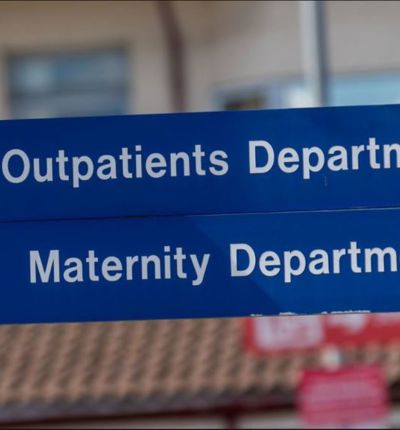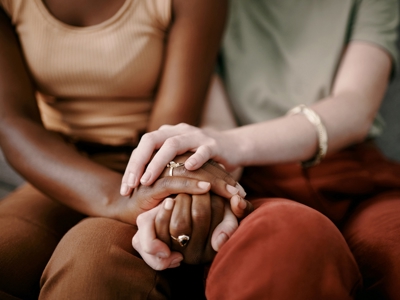
Ending violence against women in maternity care: dignity in birth is a human right
For the 16 days of Activism against Gender-based Violence, senior associate solicitor Firdous Ibrahim and trainee solicitor Nayaab Asif highlight the importance of respectful and dignified maternity care for all women.
Posted on 02 December 2024
Content warning: This blog contains sensitive content
Pregnancy and childbirth should be a time of joy and excitement, yet for many women, it is marred by neglect and mistreatment. Obstetric violence, a lesser-discussed form of gender-based violence, occurs in healthcare settings, where women are subject to disrespect, coercion, and abuse during childbirth.
Understanding obstetric violence
Obstetric violence refers to the mistreatment, abuse, or disrespect of women during pregnancy, labour, and postpartum care. It is not limited to hospital births and can manifest during homebirths. It can take many forms, including:
- Verbal abuse: Shaming, scolding, or belittling women during labour.
- Physical abuse: Use of excessive force, unnecessary medical interventions, or procedures performed without consent.
- Neglect: Ignoring a woman's requests, leaving her unattended, or failing to provide adequate pain relief.
- Coercion: Forcing or pressuring women into certain medical procedures (like episiotomies or C-sections) without informed consent.
The impact of violence on maternity care
Experiencing violence during childbirth can have long-lasting repercussions. Women who are mistreated can have severe emotional and psychological effects, leading to trauma and depression. The fear and trauma associated with childbirth can also lead to lower rates of breastfeeding and bonding with the baby.
Statistics have shown obstetric violence disproportionately affects marginalised women, including those from low-income backgrounds, women of colour, and women with disabilities.
These women often face barriers to accessing quality healthcare and are more vulnerable to mistreatment due to systemic biases and discrimination.
For decades, certain harmful practices in maternity care have been normalised, even when they go against evidence-based medical guidelines. These include:
- Unnecessary medical interventions: The overuse of procedures like episiotomies, forceps, and caesarean sections without medical necessity.
- Lack of informed consent: Many women are not given the information they need to make decisions about their care, or their choices are disregarded by medical staff.
- Ignoring women's pain: Dismissing a woman’s expression of pain or refusing pain relief, perpetuating the harmful stereotype that women must endure suffering during childbirth.
- Erosion of trust in healthcare: Women who experience mistreatment during childbirth may avoid seeking medical care in the future, putting their health at greater risk.
How do human rights apply to maternity care?
As a society, it is important for us all to understand what our basic human rights are. In this context, it is important for us know how human rights apply to maternity care. You may be pregnant, supporting someone who is and/or an advocate who wants to understand what mechanisms are in place to support those that require it.
In the UK, human rights are protected by law. The Human Rights Act 1998 incorporates into domestic law the rights protected by the European Convention on Human Rights. The UK has also signed up to the UN Convention on the Elimination of all forms of Discrimination against Women.
What rights do I have in maternity care under the Human Rights Act?
Article 2 protects the right to life. In the context of maternity care, a breach of this may include if women are charged for receiving maternity care and as a result, decide not to receive it.
Article 3 prohibits inhuman or degrading treatment. This means that if you ask for pain relief (including for it to be topped up), it should be given unless there are good reasons against providing it (such as a medical reason which means providing it could cause harm).
Article 8 protects the right to respect for private and family life. This means you have the right to have physical autonomy of your body and no medical procedure can be carried out without your consent.
Article 14 prohibits discrimination. In relation to maternity care this means that the NHS cannot discriminate against women on the grounds of disability, race, religion, immigration status and nationality.
The role of healthcare providers in ending obstetric violence
Healthcare providers play a crucial role in preventing obstetric violence and promoting respectful maternity care. Training on trauma-informed care, cultural sensitivity, and patient rights should be mandatory for all healthcare staff. Midwives, obstetricians, and nurses respect the importance of patient autonomy, informed consent and the impact of trauma.
Women must be empowered to advocate for their own rights and the rights of others. Educational programmes that inform women about their rights in childbirth can help them feel more confident in demanding respectful care. Community support groups and childbirth education classes can also play a key role in preparing women for childbirth and informing them about what respectful care should look like.
Women should also be seen as partners in their maternity care, with their preferences and choices guiding the process.
What can women do?
Empowerment and education are key tools in the fight against obstetric violence. Here are some ways women can advocate for themselves:
- Know your rights: Educate yourself about your rights in maternity care, including the right to informed consent, the right to refuse any procedure, and the right to respectful treatment.
- Create a birth plan: Communicate your preferences and choices to your healthcare provider in advance. A birth plan can help ensure that your wishes are respected.
- Seek support: Consider having a trusted birth companion, such as a doula, who can advocate for you during labour and delivery.
- Report abuse: If you experience mistreatment, report it to the hospital administration or relevant medical boards. Your voice can help bring about change and protect other women.
The fight to end violence against women must extend to maternity care. Women deserve to give birth in an environment that honours their autonomy, respects their dignity, and prioritises their wellbeing. Obstetric violence is a violation of human rights, and it has no place in modern healthcare.
As we mark 16 days of Activism against Gender-based Violence, let us pledge to stand against all forms of abuse including in maternity care. It’s time to listen to women, believe their stories, and ensure that every birth is a respectful and empowering experience.
If you or someone you know has experienced mistreatment during childbirth, organisations like Birthrights can provide support and guidance.

Firdous Ibrahim
Firdous Ibrahim is a senior associate solicitor in the medical negligence department.



